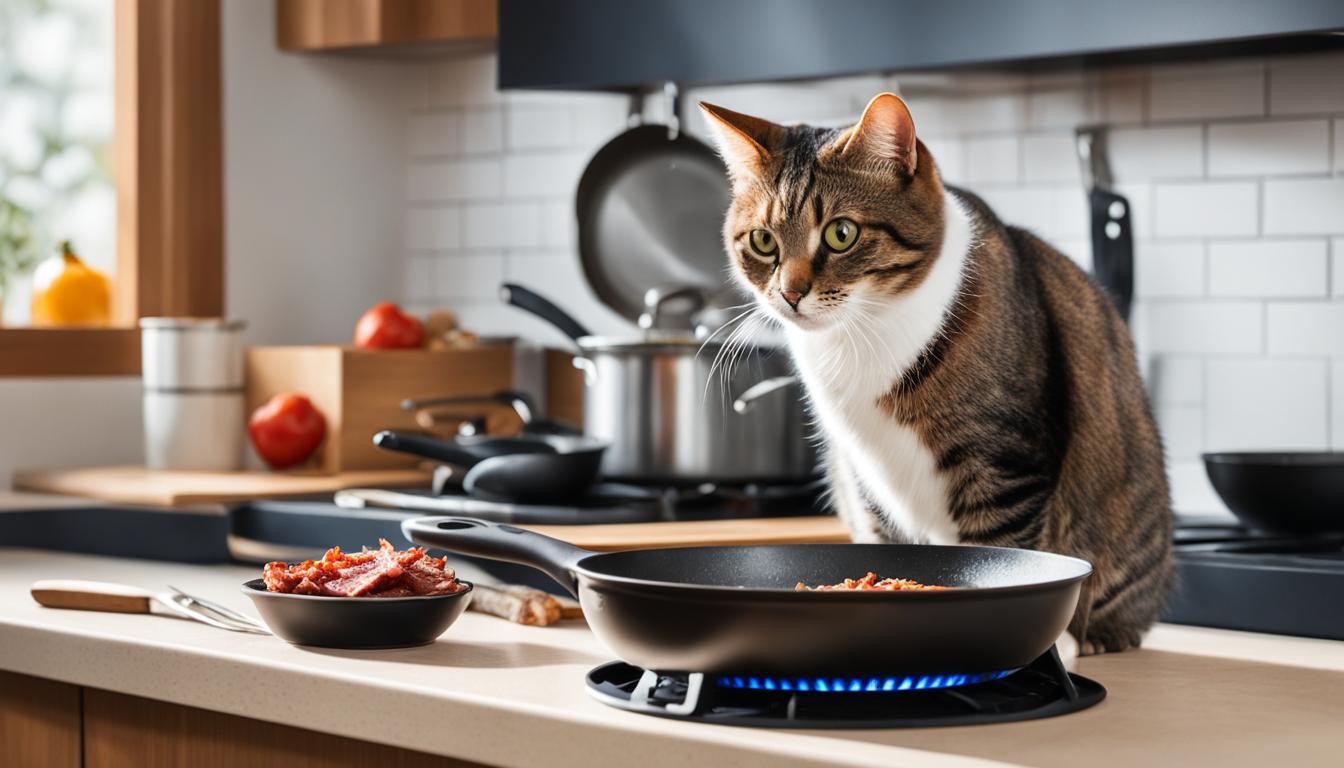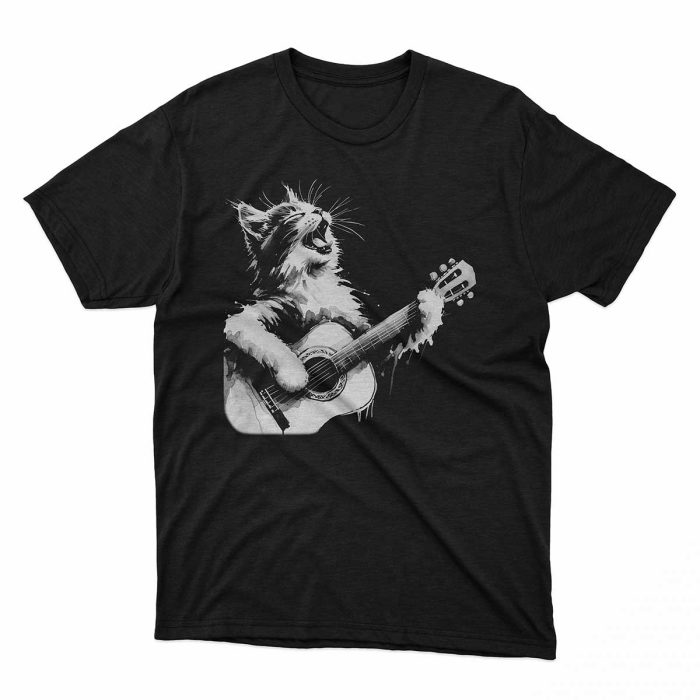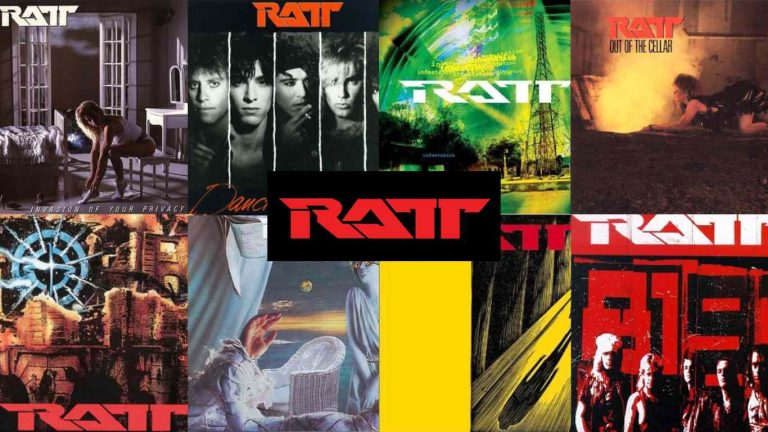Can Cats Eat Bacon? Safe Treat Guidelines
Are you a cat owner wondering if it’s safe to share your breakfast bacon with your feline friend? While cats can eat bacon in moderation as an occasional treat, there are some important guidelines you should follow to ensure their safety and well-being.
Core Insights:
- Cats can eat bacon as a treat, but it should be limited and given in small amounts.
- The high fat and sodium content in bacon can be harmful to cats if consumed in excess.
- Stick to veterinarian-recommended cat food and treats to ensure a balanced diet.
- Monitor your cat’s overall diet and avoid overfeeding bacon to prevent health issues.
- Safe alternatives to bacon include cooked chicken, tuna, salmon, and lean beef.
Can Cats Eat Bacon? Understanding the Nutritional Needs of Cats
Cats are obligate carnivores, meaning they require a diet primarily consisting of meat. They need a significant amount of protein and essential amino acids like taurine for their overall health, including heart and vision functioning.
While bacon does contain protein, it also has high levels of fat and sodium, which can be detrimental to a cat’s health if consumed in excess.
Bacon provides the following nutritional information:
| Nutrient | Amount per 100g |
|---|---|
| Protein | 37g |
| Fat | 43g |
| Sodium | 2.06g |
| Calories | 507 |
As you can see, bacon is high in fat and sodium, which can lead to weight gain, obesity, and other health issues in cats. While protein is essential for cats, there are healthier sources available to meet their nutritional needs.
It’s important to provide your cat with a well-balanced diet that includes commercial cat food formulated specifically for their nutritional requirements. These cat foods are designed to provide the right balance of proteins, fats, and other essential nutrients, ensuring your cat’s overall health and well-being.

H3: The Importance of Taurine
Taurine is an essential amino acid that cats cannot produce on their own. They rely on their diet to obtain adequate amounts of taurine, which is crucial for their heart health and vision. A deficiency in taurine can lead to serious health issues, including dilated cardiomyopathy and vision problems. While bacon does contain taurine, it is not a reliable source and should not be relied upon as a primary source of this essential nutrient.
Incorporating other protein-rich foods into your cat’s diet is a better way to ensure they receive sufficient taurine. This can include lean meats like chicken, turkey, and fish.
“Cats are obligate carnivores, meaning they require a diet primarily consisting of meat.”When considering whether cats can eat bacon, it’s essential to keep their nutritional needs in mind. While bacon may be a tasty treat for humans, it is not a necessary or optimal food choice for cats. It is best to avoid feeding bacon to your feline friend and focus on providing them with a balanced and nutritious diet that meets their specific dietary requirements.
The Risks of Feeding Bacon to Cats
Feeding bacon to cats can pose several risks. The high fat content can lead to weight gain and obesity, while the excess sodium can cause salt poisoning and dehydration. Additionally, the preservatives and additives in bacon can be harmful to cats. Cats with sensitive stomachs or pre-existing gastrointestinal issues, such as pancreatitis, should not be given bacon.
If you feed your cat bacon regularly or in large quantities, it can have detrimental effects on their health. The high fat content in bacon can lead to weight gain, which can contribute to obesity. Obesity in cats can lead to a variety of health issues, including diabetes, arthritis, and heart disease.
Bacon is also high in sodium, which can be harmful to cats. Excessive sodium intake can lead to salt poisoning and dehydration. Cats are relatively small animals, and their bodies are not designed to handle large amounts of sodium. Consuming bacon can disrupt their delicate electrolyte balance and lead to serious health problems.
It’s important to remember that cats are obligate carnivores, which means they have specific nutritional needs that must be met for optimal health. While bacon does contain protein, it is not a balanced or suitable source of nutrition for cats. It lacks many essential nutrients that cats require, such as taurine and certain vitamins and minerals.Cats with sensitive stomachs or pre-existing gastrointestinal issues should not be given bacon. The high fat content and additives in bacon can aggravate these conditions and lead to digestive discomfort, vomiting, or diarrhea. Cats with conditions like pancreatitis, which is inflammation of the pancreas, should especially avoid bacon as it can trigger an episode.
When it comes to feeding your cat, it’s important to prioritize their health and wellbeing. While bacon may be tempting as a treat, it is best to avoid feeding it to your feline friend. Instead, opt for safer and healthier alternatives that are specifically formulated for cats.
The Risks of Feeding Bacon to Cats:
| Risk | Description |
|---|---|
| Weight gain and obesity | The high fat content in bacon can contribute to weight gain and obesity in cats. |
| Salt poisoning | The excess sodium in bacon can lead to salt poisoning and electrolyte imbalances in cats. |
| Dehydration | The high sodium content in bacon can cause dehydration in cats. |
| Harmful additives | Bacon often contains preservatives and additives that can be harmful to cats. |
| Aggravating gastrointestinal issues | Cats with sensitive stomachs or pre-existing gastrointestinal issues may experience digestive discomfort or illness when fed bacon. |
If you believe your cat has ingested bacon or is experiencing any health issues, it is important to consult with a veterinarian. They can provide guidance and treatment if necessary, ensuring your cat’s health and well-being.

Types of Bacon and Their Impact on Cats
When it comes to bacon, there are various types that may differ in their nutritional composition and potential effects on cats. It’s important to understand these distinctions to make informed choices about what you feed your feline friend.
Pork Bacon
Pork bacon, made from cured and smoked pork belly, is the most commonly consumed type of bacon. While it may be a tasty treat for humans, it may not be the healthiest option for cats. Pork bacon is high in fat and sodium, which can lead to weight gain, digestive issues, and even more serious health conditions when consumed in excess.
Turkey Bacon
Turkey bacon is a popular alternative to pork bacon, especially for those looking for a leaner option. It is made from ground turkey and mixed with seasonings before being cooked. While turkey bacon is typically lower in fat compared to pork bacon, it can still contain a significant amount of sodium, which should be taken into consideration when offering it to your cat.
Canadian Bacon
Canadian bacon, also known as back bacon, is made from center-cut pork loin. Unlike the traditional bacon cuts, Canadian bacon is not smoked, but it is still cured. While it is not toxic to cats, it is important to remember that it is still a processed meat product and should be given sparingly. Canadian bacon can also contain high levels of sodium, which can have negative impacts on your cat’s health if consumed frequently.
Remember, even alternative bacon products or substitutes can be high in salt content and should only be offered in minimal amounts to your feline companion.
Here is a summary of the types of bacon and their impact on cats:
| Type of Bacon | Impact on Cats |
|---|---|
| Pork Bacon | High in fat and sodium. Can lead to weight gain and digestive issues when consumed in excess. |
| Turkey Bacon | Lower in fat compared to pork bacon, but still contains a significant amount of sodium. |
| Canadian Bacon | Not toxic to cats, but still a processed meat product with potentially high sodium levels. |
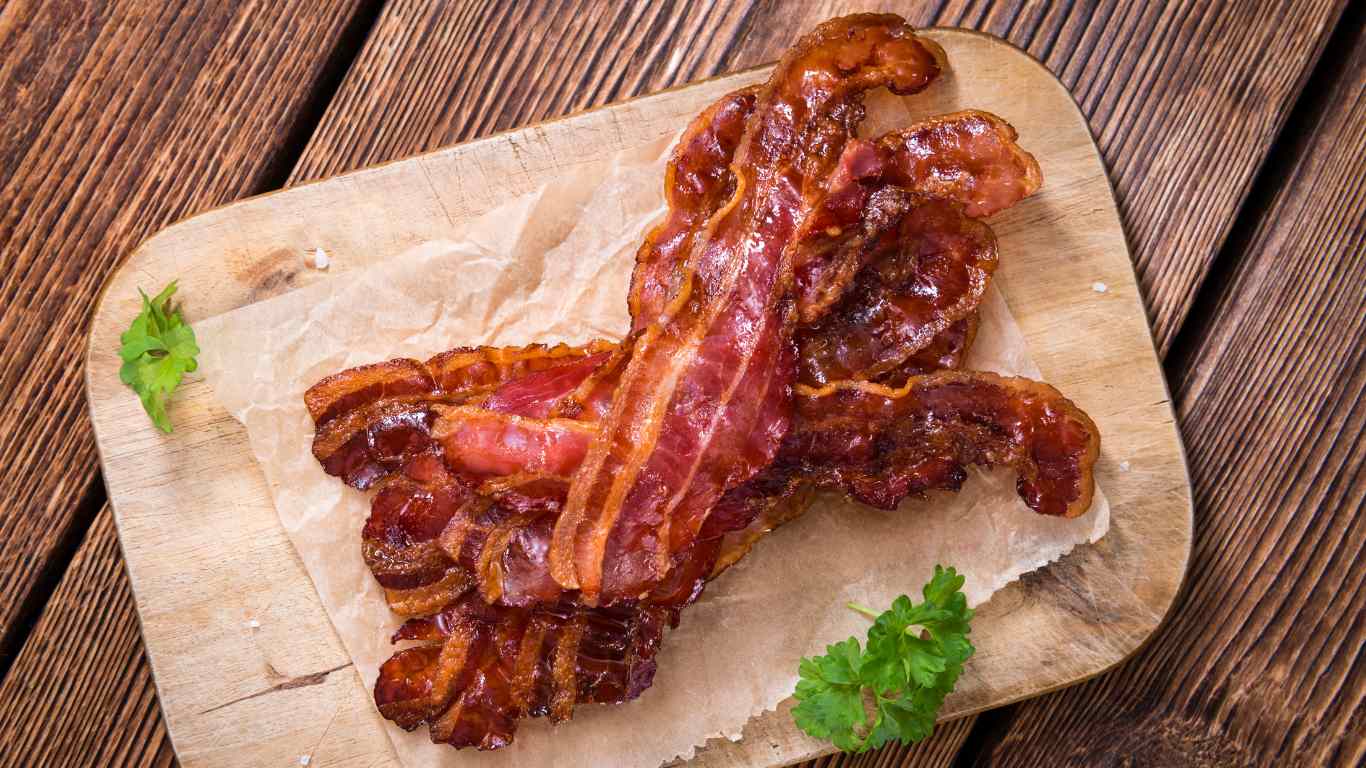
The Dangers of Raw Bacon for Cats
When it comes to feeding your cat bacon, it’s important to remember that raw bacon is a big no-no. Raw meat, including bacon, can harbor harmful bacteria and parasites that can wreak havoc on your feline friend’s delicate digestive system.
Feeding raw bacon to cats can lead to gastrointestinal infections, such as listeriosis and salmonellosis, which can cause symptoms like lethargy, diarrhea, and fever. These infections can be dangerous and even life-threatening for cats.
What’s more, raw bacon can increase the risk of serious health conditions in cats, including pancreatitis and dehydration. Pancreatitis, inflammation of the pancreas, can be extremely painful and may require veterinary treatment. Dehydration, on the other hand, can be a result of diarrhea caused by bacterial infections.
To keep your cat safe and healthy, it’s best to avoid feeding them raw bacon altogether. Stick to cooked bacon, if you must offer it as an occasional treat, and ensure it is fed in very small quantities.
“Feeding your cat raw bacon may seem harmless, but the risks involved can have serious consequences for their health. It’s always better to err on the side of caution and opt for safer alternatives.”
| Health Risks of Raw Bacon for Cats | Symptoms |
|---|---|
| 1. Gastrointestinal infections (listeriosis, salmonellosis) | – Lethargy – Diarrhea – Fever |
| 2. Pancreatitis | – Abdominal pain – Loss of appetite – Vomiting |
| 3. Dehydration | – Increased thirst – Dry mouth – Sunken eyes |
As responsible cat owners, it’s crucial to prioritize your cat’s health and well-being. By avoiding raw bacon and opting for safer alternatives, you can prevent unnecessary risks and ensure your feline companion stays happy and healthy.
Can Cats Eat Bacon Grease?
Bacon grease should never be given to cats. It is high in fat and sodium, which can be harmful to their health. Resting the bacon on a paper towel and removing excess grease before offering it to your cat is recommended.
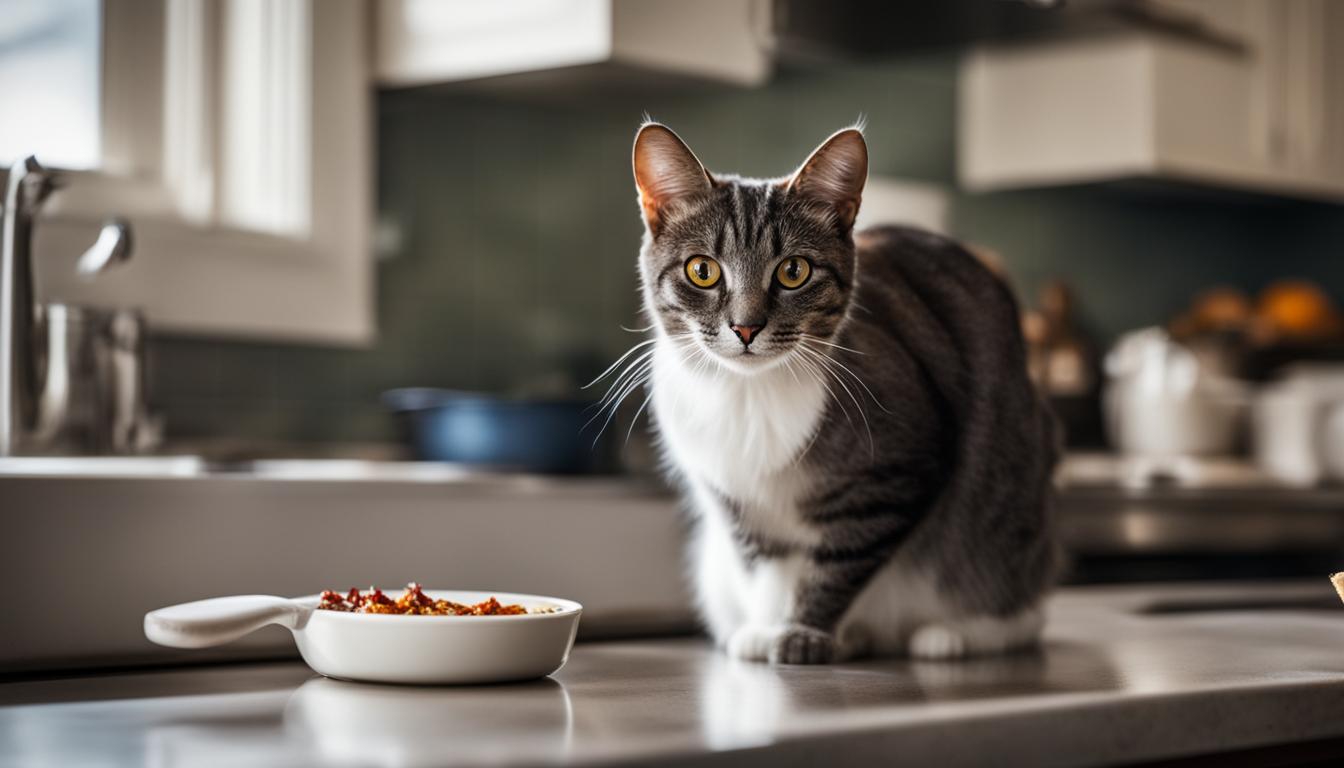
However, it is best to avoid giving them bacon grease altogether and opt for healthier alternatives.
Modération is Key – Guidelines for Feeding Cats Bacon
Feeding bacon to cats should be done in moderation. Only a small amount, such as a thin slice, should be given as an occasional treat. Cats should not consume more than 4% of their daily calories from treats, including bacon. It is important to monitor your cat’s overall diet and ensure they are receiving proper nutrition from their regular food.
While a small amount of bacon can be enjoyed by your feline friend, it is essential to understand the importance of moderation. Bacon, with its high fat and sodium content, should not be a significant part of your cat’s diet. As obligate carnivores, cats require a diet primarily consisting of meat to meet their nutritional needs. While bacon does contain protein, it is not nutritionally balanced for cats and may lead to health issues if consumed in excess.
“Only a small amount, such as a thin slice, should be given as an occasional treat.”
Feeding your cat excessive amounts of bacon can contribute to weight gain and obesity. The high fat content can lead to digestive issues, pancreatitis, and other health conditions. Furthermore, the excess sodium in bacon can be detrimental to your cat’s well-being, leading to salt poisoning and dehydration.
As a responsible pet owner, it is crucial to consider your cat’s specific dietary needs and consult with your veterinarian. They can provide guidance on the appropriate amount of bacon that can be included in your cat’s diet. It is also important to remember that bacon should never replace a balanced and veterinarian-recommended cat food and treats.
In conclusion, while small amounts of bacon can be enjoyed by cats as an occasional treat, it is crucial to feed them in moderation. Monitoring their overall diet is essential to ensure they receive the proper nutrition from their regular food. Remember, the health and well-being of your furry friend should always be the top priority.
Meow-sical Genius: Black & White Guitarist Cat T Shirt
Unleash your inner feline music lover with our “Meow-sical Genius: Black & White Guitarist Cat T Shirt”! This unique tee is the purr-fect way to show off your passion for cats and music. Featuring a stunning hand-drawn design of a cat in full song, strumming a guitar, it’s a masterpiece that will capture the hearts…
Potential Health Conditions from Feeding Cats Bacon
Feeding cats bacon regularly or in excessive amounts can lead to various health conditions. It is important to be aware of the risks and avoid overfeeding bacon to your feline friend.
Health conditions related to feeding cats bacon:
- Obesity
- Salt poisoning
- High blood pressure
- Digestive stress
- Pancreatitis
- Severe dehydration
Feeding cats bacon can contribute to obesity due to its high fat content. Cats that are overweight or obese are at a higher risk of developing various health issues, such as diabetes, joint problems, and heart disease.
Additionally, the high sodium content in bacon can lead to salt poisoning in cats. Excessive salt consumption can cause electrolyte imbalances, resulting in symptoms like vomiting, diarrhea, excessive thirst, and lethargy.
Bacon is also rich in fat, which can contribute to the development of high blood pressure in cats. Cats with high blood pressure may experience symptoms like blindness, seizure, weakness, and difficulty breathing.
Furthermore, feeding cats bacon can cause digestive stress. Cats’ digestive systems are not designed to handle large quantities of fat, which can lead to gastrointestinal issues like diarrhea, vomiting, and stomach pain.
Pancreatitis, an inflammation of the pancreas, can also be triggered by the consumption of bacon. The high fat content in bacon puts strain on the pancreas, increasing the risk of developing this painful condition.
Lastly, bacon can contribute to severe dehydration in cats. The high sodium content can cause increased thirst, leading cats to drink more water. However, if they are not drinking enough water to compensate for the excess sodium, it can result in dehydration.
It is crucial to prioritize your cat’s health and well-being by providing them with a balanced and nutritious diet. While an occasional small piece of bacon as a treat is generally fine, regular or excessive consumption can lead to these health conditions. Ensure that bacon is given in moderation and be mindful of its potential risks.

Safer Alternatives to Bacon for Cats
If you’re looking for safer and healthier alternatives to bacon as treats for your cat, there are plenty of options to consider. These alternatives provide nutritional benefits without the risks associated with bacon. Remember to always consult with your veterinarian before introducing any new foods into your cat’s diet.
Here are some safer alternatives:
- Pieces of cooked chicken
- Tuna
- Salmon
- Lean beef
These alternatives offer a variety of protein sources and flavors that your cat may enjoy. It’s important to offer these treats in small pieces appropriate for your cat’s size and always in moderation.
What Other Foods Should Cats Avoid?
In addition to bacon, there are other foods that cats should avoid. These include:
- Onions
- Garlic
- Chocolate
- Caffeine
- Alcohol
- Grapes
- Raisins
- Certain types of nuts
These foods can be toxic to cats and should never be given to them. It is important to educate yourself on the dangers of these foods and ensure your cat is kept away from them.

| Food | Toxicity Level |
|---|---|
| Onions | Highly toxic, can cause anemia |
| Garlic | Highly toxic, can cause anemia |
| Chocolate | Highly toxic, can cause seizures and heart problems |
| Caffeine | Toxic, can cause rapid heartbeat and tremors |
| Alcohol | Highly toxic, can lead to coma or death |
| Grapes | Toxic, can cause kidney failure |
| Raisins | Toxic, can cause kidney failure |
| Certain types of nuts (e.g., macadamia, walnuts) | Toxic, can cause weakness, tremors, and vomiting |
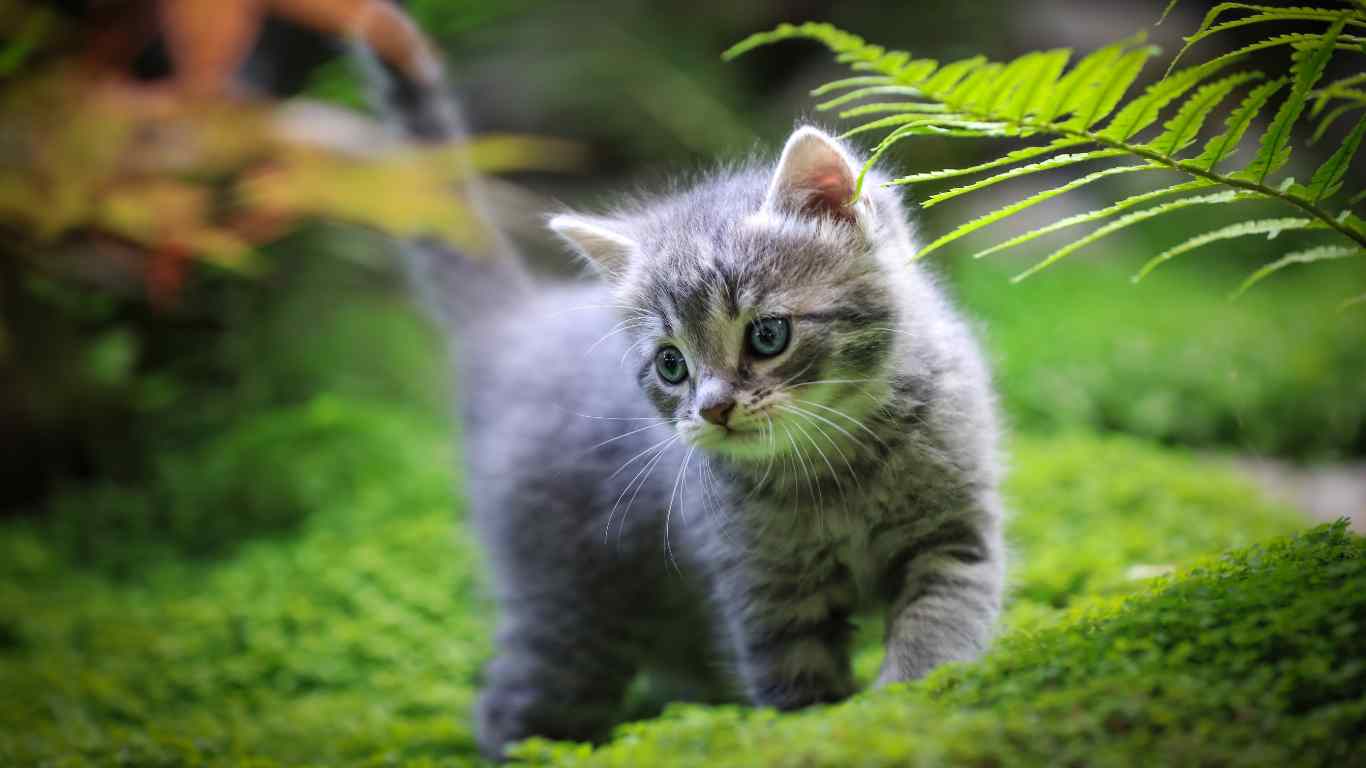
SIGN UP FOR NEWSLETTER
Sign up to receive email updates on new product announcements, gift ideas, special promotions, sales and more.
Final Remarks
In the end, it is clear that while cats may enjoy the taste of bacon, it is not a suitable food for regular consumption. The high levels of fat and sodium in bacon can pose risks to cats’ health, including weight gain, salt poisoning, and digestive issues. Therefore, it is recommended to offer bacon only as an occasional treat and in small amounts.
Rather than relying on bacon as a treat, it is best to focus on providing a balanced and nutritionally complete diet for your feline friend. Consult with your veterinarian to determine the appropriate diet and feeding guidelines specific to your cat’s needs.
Remember, the well-being and health of your cat should always be the top priority. By making informed choices about your cat’s diet and opting for safer alternatives, you can ensure their overall health and happiness.
FAQ
Can cats eat bacon?
Cats can eat bacon in moderation as an occasional treat, but it should not be a regular part of their diet.
What are the risks of feeding bacon to cats?
Feeding bacon to cats can lead to weight gain, obesity, salt poisoning, high blood pressure, digestive stress, pancreatitis, and severe dehydration.
Can cats eat raw bacon?
Cats should never be fed raw bacon as it can contain harmful bacteria and parasites that can cause gastrointestinal infections.
Can cats eat bacon grease?
Cats should not be given bacon grease as it is high in fat and sodium, which can be harmful to their health.
How much bacon should I feed my cat?
Only a small amount of bacon, such as a thin slice, should be given as an occasional treat. It is important to monitor your cat’s overall diet and ensure they are receiving proper nutrition from their regular food.
What are some safer alternatives to bacon for cats?
Safer alternatives to bacon for cats include small pieces of cooked chicken, tuna, salmon, and lean beef. These options provide nutritional benefits without the risks associated with bacon. Always consult with your veterinarian before introducing any new foods into your cat’s diet.
What other foods should cats avoid?
Cats should avoid onions, garlic, chocolate, caffeine, alcohol, grapes, raisins, and certain types of nuts as these foods can be toxic to them. It is important to keep your cat away from these dangerous foods.
🎧 Never Miss a Drop
Exclusive product releases, hip-hop deep dives, and member-only discounts. Straight to your inbox.
Free forever. No spam. Unsubscribe anytime.

Get the Culture, Delivered
Deep dives into hip-hop history, exclusive product drops, and discounts sent straight to your inbox. No spam, just culture.
Join 2,000+ hip-hop heads already in the loop. Unsubscribe anytime.

